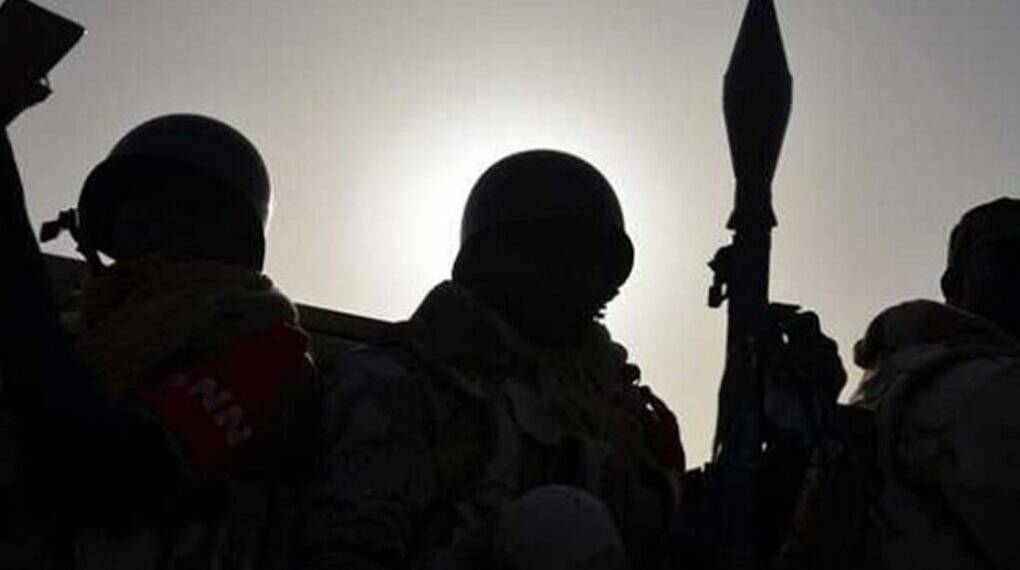When Washington Speaks, Islamabad Listens: Pakistan’s U-Turn on US-Designated TRF Terror outfit.
In a significant diplomatic shift, Pakistan’s Foreign Minister Ishaq Dar has publicly supported the United States’ decision to label The Resistance Front (TRF), a known proxy of Lashkar-e-Taiba, as a Foreign Terrorist Organization (FTO).
This comes just months after Dar admitted in Parliament that Islamabad had successfully blocked the mention of TRF in a United Nations Security Council (UNSC) resolution condemning the April 2025 Pahalgam terror attack.
Speaking at a public event in Washington, Dar said, ‘It is a sovereign decision of the United States to designate TRF. We have no issue with it. If they have any evidence, we welcome it.’ However, he insisted that connecting TRF to Lashkar-e-Taiba is ‘wrong’, a claim that India and several international observers have long refuted with substantial evidence.
From Denial to Endorsement
Dar’s tone in Washington sharply contrasts with his statements in Pakistan’s National Assembly earlier this year. Back in April, following the Pahalgam attack that left 26 civilians dead, including several tourists, Dar told lawmakers that Pakistan had intervened at the UN to remove TRF’s name from the resolution text.
‘I got calls from several global capitals, but Pakistan stood firm. TRF was deleted, and Pakistan prevailed,’ Dar had said proudly in Parliament. At that time, he maintained that there was insufficient evidence linking TRF to the attack and that Pakistan would not allow the group to be implicated without further proof.
Now, however, with mounting international pressure and the US officially sanctioning TRF, Pakistan seems to be revising its stance.
US Steps in After Deadly Pahalgam Attack
On July 17, the US State Department designated TRF as both a Foreign Terrorist Organization (FTO) and a Specially Designated Global Terrorist (SDGT). The announcement came from US Secretary of State Marco Rubio, who highlighted TRF’s role in the Pahalgam massacre and its direct ties to Lashkar-e-Taiba, a group already designated as a terror outfit by both the US and the UN.
‘This was the deadliest civilian attack in India since 26/11. TRF is a front for LeT, and this designation reflects our commitment to justice and regional security,’ said Rubio.
The April 22 attack in Pahalgam, a popular tourist destination in South Kashmir’s Anantnag district, stunned the nation. It took place while US Vice President JD Vance was on an official visit to India, and Prime Minister Modi was in Saudi Arabia. TRF initially claimed responsibility, citing opposition to demographic changes in Kashmir, only to later retract the statement in what appeared to be a strategic backpedal.
What is TRF, and Why Was It Created?
The Resistance Front was founded in October 2019, shortly after Article 370 was abrogated, stripping Jammu and Kashmir of its special status. The group’s formation is widely seen as a strategic rebranding of terrorism in Kashmir, designed to mask its links to Pakistan and present militancy as a ‘local resistance movement.’
Unlike traditional terror outfits with overt Islamic identifiers like Lashkar-e-Taiba or Hizbul Mujahideen, TRF was deliberately given a neutral-sounding name to avoid scrutiny. Yet, most of its cadres are known to have been recruited from LeT and trained in Pakistan with ISI support.
According to Indian intelligence and security analysts, TRF has carried out numerous attacks on civilians, migrant workers, and security forces in Kashmir, including:
Keran Sector gun battle (2020): Five Indian soldiers and five TRF militants were killed
Sopore BJP attack (2021): Several local leaders targeted
Anantnag encounter (2023): terrorists used Guerrilla Warfare techniques
Ganderbal attack (2024): A Doctor and six workers were killed at a construction site
Pahalgam massacre (2025): 26 civilians lost their lives
India’s Crackdown and Global Warnings
In January 2023, India officially banned the TRF under the Unlawful Activities (Prevention) Act (UAPA), declaring it a threat to national sovereignty. The Ministry of Home Affairs (MHA) cited TRF’s role in:
Radicalizing and recruiting youth via encrypted social media
Executing targeted killings of Kashmiri Pandits, migrant workers, and civilians
Facilitating cross-border infiltration and smuggling weapons and narcotics
Running psychological warfare to destabilize peace in the region
The MHA stated that TRF’s activities were ‘detrimental to India’s integrity,’ and confirmed its financial and operational ties to LeT and Pakistan’s ISI.
Pakistan’s Diplomatic Balancing Act
Dar’s reversal is being viewed as a sign of growing pressure on Pakistan; both from the US and international watchdogs like the Financial Action Task Force (FATF), which previously placed Islamabad on its ‘grey list’ for failure to curb terror financing.
Security analysts believe that groups like TRF were specifically created to bypass international scrutiny and disguise Pakistan’s continued support for terrorism in Kashmir. The denial of responsibility, followed by indirect admissions like Dar’s recent remarks, reflects Pakistan’s attempt to maintain plausible deniability while avoiding further diplomatic isolation.
A Blow to Pakistan’s Narrative, A Boost to India’s Case
For India, the US designation is not just a diplomatic win, it’s a validation of long-standing concerns. For years, Indian officials have warned about Pakistan’s use of proxy outfits to wage hybrid warfare in Kashmir.
With global powers like the US now acknowledging TRF’s true nature, New Delhi is expected to push for further international action against Pakistan-backed terror groups, potentially paving the way for sanctions, restrictions, and deeper scrutiny.
A Changing Tide in the Global War on Terror
As the geopolitical landscape evolves, nations like the US are beginning to act more decisively against state-sponsored terrorism, and Pakistan appears to be caught in a bind. Ishaq Dar’s contradictory remarks underscore the credibility crisis Islamabad faces in global forums.
While the designation of TRF is a strong move in the right direction, its real impact will depend on how consistently the international community follows through and whether Pakistan is finally held accountable not just for what it says, but what it enables.








